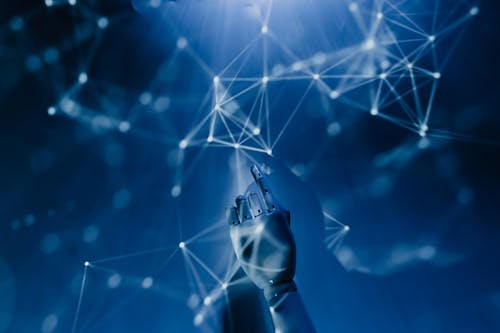Would you befriend an AI? In 2025, it’s not such a strange question. Artificial intelligence isn’t just powering search engines and smart homes — it’s becoming a companion, a confidant, even a kind of friend.
From apps that talk to you like a therapist, to AI characters that remember your preferences and simulate emotions, the lines between “technology” and “relationship” are blurring fast.
🤖 What Are AI Companions?
AI companions are advanced programs designed to simulate conversations, offer emotional support, and build ongoing relationships with users. They range from mental health bots like Woebot to AI friends like Replika and even romantic partners in virtual reality.
These systems use natural language processing, machine learning, and adaptive memory to respond in ways that feel increasingly human.
🌐 Why Are People Turning to AI for Connection?
According to a 2024 Pew Research study, 39% of Americans aged 18–34 reported using some form of AI chatbot regularly for emotional support or casual conversation.
The appeal?
-
Always available — no scheduling or time zones
-
No judgment — talk freely without fear
-
Emotionally adaptive — remembers preferences, tone, and history
In a world where loneliness is rising, AI companions offer consistency, curiosity, and calm — all on demand.
💬 Is It Healthy or Harmful?
Critics warn of emotional detachment, reduced human empathy, or even addiction to digital interactions. Supporters argue that AI companionship can supplement — not replace — real relationships, especially for those with anxiety, social isolation, or disabilities.
“It’s like having a therapist in your pocket,” said one user of a popular AI app. “Not a replacement, but something to help me get through the night.”
Like any tool, the value of AI companionship depends on how it’s used.
⚙️ The Tech Behind the Talk
AI companions use:
-
LLMs (Large Language Models) like ChatGPT and Claude
-
Voice synthesis for natural conversation
-
Emotion detection through text patterns
-
Personal memory to build ongoing connection
Some platforms are integrating AR/VR avatars and even haptic touch feedback, making these relationships feel more lifelike than ever.
🔮 What’s Next for AI and Human Relationships?
Imagine:
-
AI best friends helping kids with ADHD
-
Elderly users relying on AI for reminders, jokes, or warmth
-
Long-distance couples using AI-assisted intimacy
-
Social therapy groups run by AI moderators
The future isn’t cold and robotic — it might be surprisingly warm and thoughtful, guided by synthetic empathy.
🤔 Final Thought: Will You Say Hello to AI?
Whether you're intrigued or skeptical, one thing is clear: AI companions are becoming more capable, more emotional, and more human-like. As society adapts, the real question isn’t “Will AI change relationships?” — it’s “How will we choose to relate to AI?”

Comments
Post a Comment